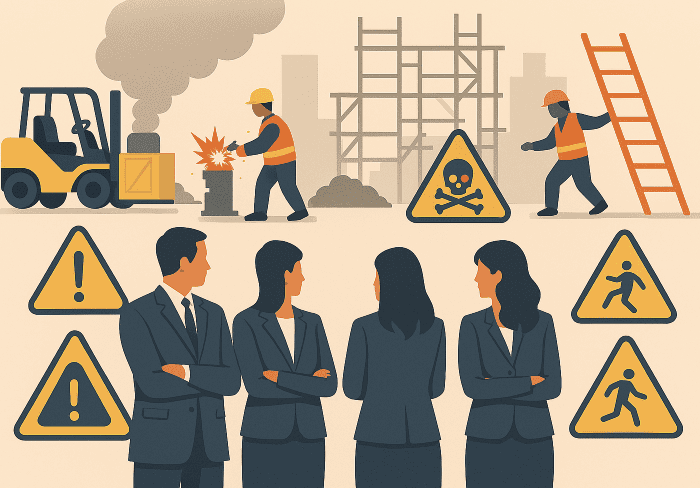The Occupational Health and Safety (OHS) legislation states that employers must eliminate hazards as far as is reasonably practicable. If you start your safety journey from this point, you will forever be frustrated in your OHS achievements and disappointed in your job. OHS may be forever linked with laws and regulations, but the safety and health of ourselves, colleagues and others is based on our personal moral code and the values we bring to our actions. OHS satisfaction comes from accepting that OHS laws are only part of our purpose
Category: executives
Suicidality as a Near Miss: Why Business Must Confront the Systems That Harm
Companies are being urged to increase their attention on the human impacts of incidents. This is a much-needed and delayed focus that existed decades ago but went out of fashion. Companies can achieve these changes after a lot of hard work and expense, but very little attention has been given to the institutions and government policies that perpetuate the “individual pathology” of workplace incidents. Some recent sociological research helps us see the immorality behind the status quo.
Workplace Bullshittery: Laugh, Cringe, Revolt
A new Australian book could revolutionise workplace cultures and improve consultation on a range of matters, not just occupational health and safety (OHS). “Wankernomics – A Deep-Dive Into Workplace Bullshittery” should be read by every worker, especially those in offices and administrative roles.
Having worked as a safety adviser on a construction site, this book confirms how the workers saw my role. I’d like to say that you finish this book with revelations of the future, but workplace bullshittery is so pervasive and ingrained, the future is bleak.
When Work Kills: Unmasking Suicidality in Corporate Australia
For over twenty years, John Bottomley has been researching the influence of work factors in suicide. His early research is rarely referenced, and although only a small sample was studied, his findings were significant. New research, published recently in the Journal of Industrial Relations, adds an essential perspective as Australia continues to progress (painfully slowly) on the prevention of workplace psychosocial hazards.
Note: this article discusses work-related suicide
Good Safety Grows Economies—Poor Governance Shrinks Them
Recently, WorkSafe ACT posted the latest episode of its Safety Spotlight podcast in which occupational health and safety (OHS) experts share their knowledge. There is commonality with much OHS advice, but there are slight variations of data and emphasis that are useful to note.
This episode included Jacqui Agius, the Australian Capital Territory’s Work Health and Safety Commissioner, and Professor Helen Lingard of RMIT University. According to the show notes:
“….they discuss the crucial importance of workplace safety, not just in preventing injuries but also its economic impact. The episode covers the hidden costs of cutting corners on safety, the significance of a proactive safety culture, and the benefits of consulting workers and employing safety by design.”
Employer Responsibility in Workplace Safety is Being Overlooked
In the ongoing debates about workplace safety, a critical question is often left unasked: What are employers doing to ensure safe and healthy work environments, and why are their responsibilities so frequently underplayed in public discourse? Too often, when workplace safety issues arise, the conversation quickly shifts to affordability and government intervention.
Continue reading “Employer Responsibility in Workplace Safety is Being Overlooked”Safety With Minimal Jargon: Tim D’Ath’s Refreshing Approach
Late last year, Tim D’Ath added to the occupational health and safety management (OHS) literature with a modern, open-minded (and short) book called “Humanising Safety”. His perspective cuts across many of the heady discussions of Safety I vs. Safety II, safety cultures, and organisational versus individual approaches… I found his clarity of advice refreshing, as he focused on core harm prevention principles while acknowledging the difficulty of communicating these principles to employers who have been taught to view OHS as a nuisance to be avoided whenever possible.







